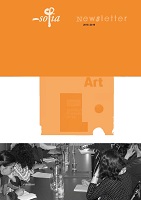
CAS Newsletter 2015/2016
Articles, pictures and interviews can be reprinted only with the consent of Centre for Advanced Study Sofia (CAS - Sofia). Any citations should be duly acknowledged.
More...We kindly inform you that, as long as the subject affiliation of our 300.000+ articles is in progress, you might get unsufficient or no results on your third level or second level search. In this case, please broaden your search criteria.

Articles, pictures and interviews can be reprinted only with the consent of Centre for Advanced Study Sofia (CAS - Sofia). Any citations should be duly acknowledged.
More...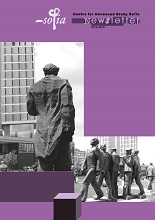
Articles, pictures and interviews can be reprinted only with the consent of Centre for Advanced Study Sofia (CAS - Sofia). Any citations should be duly acknowledged.
More...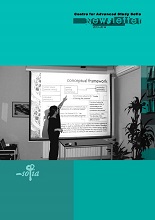
Articles, pictures and interviews can be reprinted only with the consent of Centre for Advanced Study Sofia (CAS - Sofia). Any citations should be duly acknowledged.
More...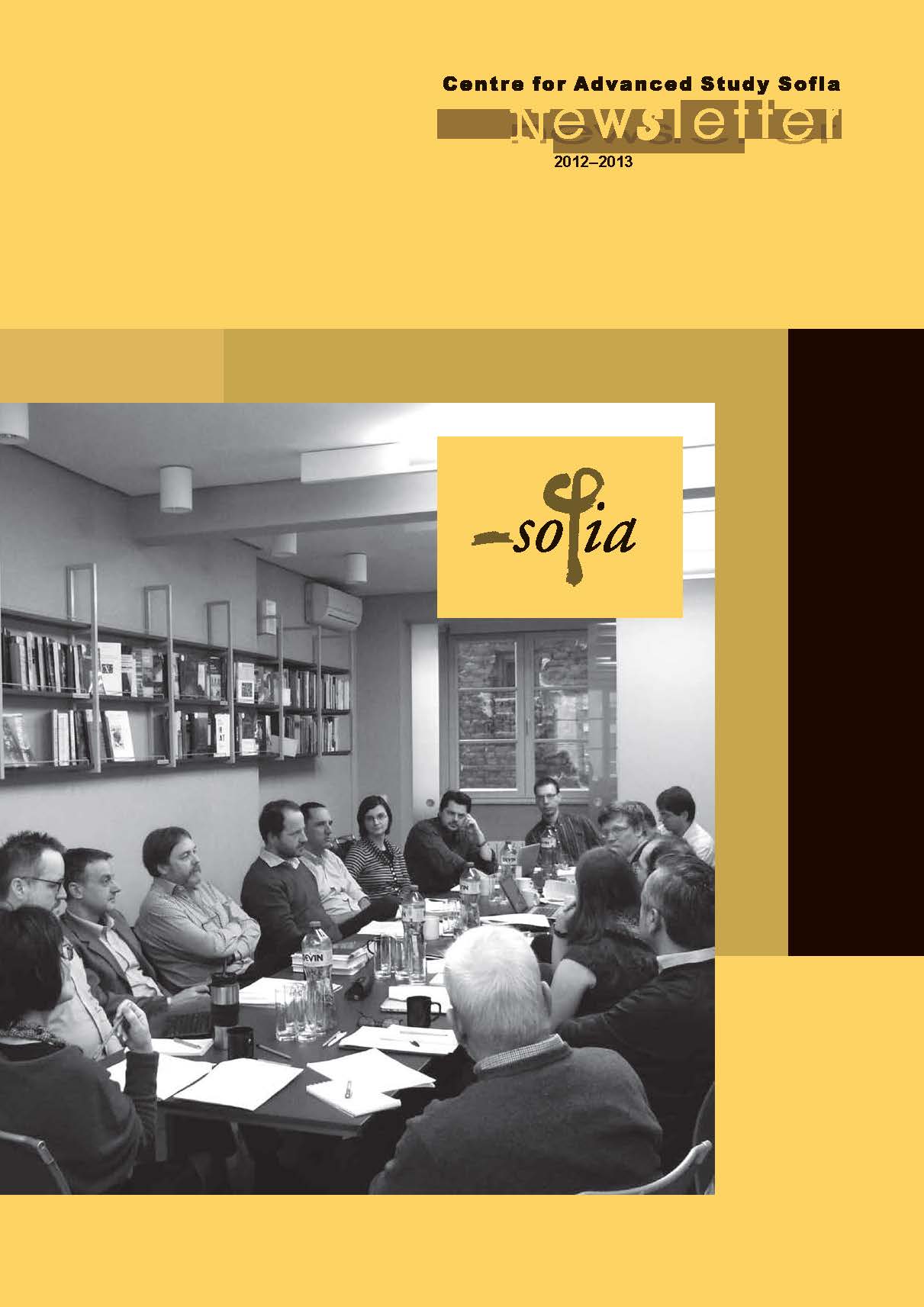
Articles, pictures and interviews can be reprinted only with the consent of Centre for Advanced Study Sofia (CAS - Sofia). Any citations should be duly acknowledged.
More...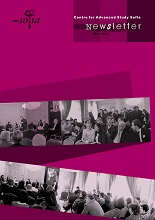
Articles, pictures and interviews can be reprinted only with the consent of Centre for Advanced Study Sofia (CAS - Sofia). Any citations should be duly acknowledged.
More...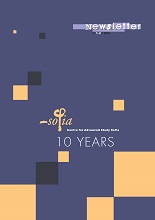
Articles, pictures and interviews can be reprinted only with the consent of Centre for Advanced Study Sofia (CAS - Sofia). Any citations should be duly acknowledged.
More...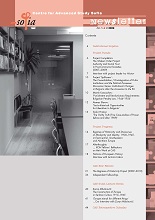
Articles, pictures and interviews can be reprinted only with the consent of Centre for Advanced Study Sofia (CAS - Sofia). Any citations should be duly acknowledged.
More...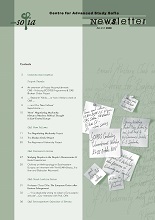
Articles, pictures and interviews can be reprinted only with the consent of Centre for Advanced Study Sofia (CAS - Sofia). Any citations should be duly acknowledged.
More...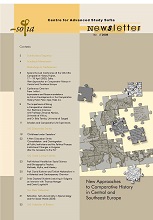
Articles, pictures and interviews can be reprinted only with the consent of Centre for Advanced Study Sofia (CAS - Sofia). Any citations should be duly acknowledged.
More...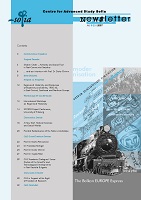
Articles, pictures and interviews can be reprinted only with the consent of Centre for Advanced Study Sofia (CAS - Sofia). Any citations should be duly acknowledged.
More...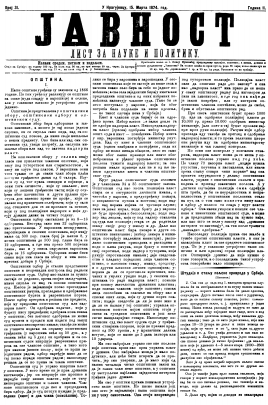
ОПШТИНА; Штудије о стању пољске привреде у Србији; Земљеделско-шумарска школа у Пожаревцу; ДОПИСИ; ОГЛАСИ; НАШИМ ЧИТАОЦИМА; На знање; Књижевни Оглас;
More...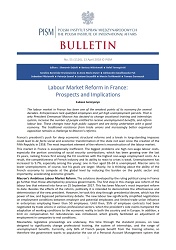
The labour market in France has been one of the weakest points of its economy for several decades. Entrepreneurs lack qualified employees and yet high unemployment persists. That is why President Emmanuel Macron has decided to change vocational training and internships system, increase the number of people entitled to receive unemployment benefits, and reform labour law. These changes have high public support and are being undertaken with a good economy. The traditional resistance from trade unions and increasingly better organised opposition remains a challenge to Macron’s reforms.
More...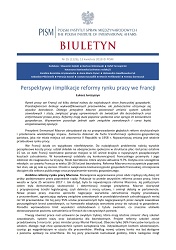
Rynek pracy we Francji od kilku dekad należy do najsłabszych stron francuskiej gospodarki. Przedsiębiorcom brakuje wykwalifikowanych pracowników, ale jednocześnie utrzymuje się wysokie bezrobocie. Dlatego prezydent Macron postanowił zmienić system szkoleń zawodowych i staży, zwiększyć grupę uprawnionych do świadczeń dla bezrobotnych oraz zreformować prawo pracy. Reformy mają duże poparcie społeczne oraz sprzyja im koniunktura gospodarcza. Wyzwaniem pozostaje jednak opór związków zawodowych i coraz lepiej zorganizowanej opozycji.
More...
Čak ni Vučić ne zna šta bi sa školom od septembra. Čitalac je primetio, inače brbljivi i u sve najbolje upućeni Vučić o školi se u protekle dve sedmice uporno i dosledno ne oglašava. On koji suvereno vlada koronom i kovidom, uključujući i respiratore, niskom i visokom gradnjom, ekonomijom domaćom i stranom, vozovima i letećim automobilima, čak i američkim izborima za predsednika, nema šta da kaže o školi najesen. A nije da mu je škola uopšte strana tema. Onomad je čitavu kampanju posadio na školske klozete. I dualno obrazovanje promovisao je iz sve snage. Ali, o školi pod pretnjom zaraze – ćuti.
More...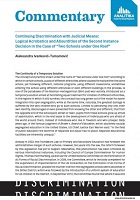
The concept and practice known under the name of “two schools under one roof,” according to which in certain schools, pupils of different ethnicities attend classes formally within the same school, yet following different, national programs, using different classrooms, sometimes entering the school using different entrances or even different buildings in the process, is one of the paradoxes of the Bosnian-Herzegovinian (BiH) post-war society. Introduced as a temporary solution aimed at facilitating equal treatment for children of different ethnicities, in the regions in which it still survives, the concept has long grown out of the model for easier integration into open segregation, while at the same time, naturally, the greatest damage is suffered by the very children who go to such schools. Limited to perceiving only one, their own identity, discouraged or even prevented from knowing the other and different, that from the opposite end of the schoolyard, street or town, pupils from these schools grow up afraid of assimilation, which in the end leads to the development of individuals who are afraid of the world around them, instead of individuals who live in freedom and who prosper. Sixty years ago, in the famous judgment of Brown v. Board of Education, which abolished racially segregated education in the United States, US Chief Justice Earl Warren said: “In the field of public education the doctrine of ‘separate but equal’ has no place. Separate educational facilities are inherently unequal.”
More...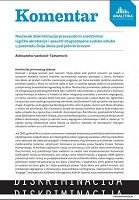
Koncept i praksa poznati pod nazivom “dvije škole pod jednim krovom”, po kojem u izvjesnim školama učenici različite nacionalnosti nastavu pohađaju u okviru formalno iste škole, ali prateći različite, nacionalne programe, pri tome koristeći različite prostorije, ponekad ulazeći u školu na različite ulaze ili čak i u različite zgrade, jedan je od paradoksa poslijeratnog bosanskohercegovačkog društva. Nastao kao privremeno rješenje usmjereno na omogućavanje jednakog tretmana djeci različitih nacionalnosti, u područjima u kojima je opstao koncept je odavno iz modela za lakšu integraciju prerastao u otvorenu segregaciju, pri čemu, naravno, najveću štetu trpe baš i upravo djeca koja u takve škole idu. Ograničeni na spoznaju samo jednog, sopstvenog identiteta, obeshrabreni ili čak spriječeni da upoznaju drugo i drugačije, sa drugog kraja školskog dvorišta, ulice ili grada, učenici ovih škola odrastaju u strahu od asimilacije, što u konačnici dovodi do razvoja individua koje se boje svijeta oko sebe, umjesto da u njemu žive u slobodi i da prosperiraju. Earl Warren, predsjednik Vrhovnog suda Sjedinjenih Američkih Država, još prije šezdeset godina, u čuvenoj presudi Brown protiv Odbora obrazovanja, kojom je ukinuto rasno segregirano obrazovanje u SAD-u, kazao je: “U oblasti javnog obrazovanja nema mjesta za doktrinu ‘odvojeni ali ravnopravni’. Odvojeni obrazovni sistemi su u srži neravnopravni”.
More...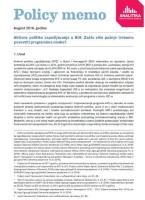
Aktivne politike zapošljavanja (APZ) u Bosni i Hercegovini (BiH) nedovoljno su razvijene. Javna potrošnja na APZ-e je niska i u 2014. godini iznosila je 0,15% BDP-a zemlje dok, u prosjeku, zemlje EU na aktivne mjere izdvajaju oko 0,45% BDP-a. Pri tome, u prioritizaciji potrošnje na mjere zapošljavanja, APZ-i imaju tercijarni značaj i uglavnom se finansiraju iz sredstava javnih zavoda / službi za zapošljavanje (JSZ) preostalih nakon izmirenja operativnih troškova JSZ-a i troškova pasivnih mjera. Obuhvat radne snage programima APZ-a iznosi svega 1% dok, poređenja radi, u zemljama OECD-a za koje su dostupni podaci, iznosi oko 4%. Postojeće analize također ukazuju na neadekvatno ciljanje ovih programa, često na kategorije koje imaju veće izglede za zaposlenje (poput mladih sa svršenim visokim obrazovanjem i sl.). Nadalje, kapaciteti JSZ-a su nedostatni, što smanjuje mogućnosti za adekvatnu implementaciju programa APZ-a. Na koncu, u proteklom periodu nisu etablirani mehanizmi niti unificirana metodologija za sistematsku evaluaciju ovih programa u okviru JSZ-a. Osim navedenih problema u pogledu razvijenosti i implementacije programa APZ-a, također se može postaviti pitanje adekvatnosti postojećeg dizajna aktivnih politika, uzmu li se u obzir međunarodni trendovi u ovoj oblasti, kao i lokalni socioekonomski kontekst. Postojeći APZ-i predstavljaju set izolovanih intervencija na tržištu rada koje su pretežno orijentirane na izravno zapošljavanje ciljnih skupina u svrhu sanacije nekih od gorućih posljedica postojećeg socioekonomskog stanja u BiH. Međutim, one su u vrlo maloj mjeri usmjerene na investiranje u razvoj ljudskih potencijala i osnaživanje konkurentnosti nezaposlenih lica, što bi dugoročno doprinijelo unapređenju funkcioniranja tržišta rada.
More...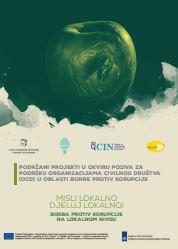
Opšti cilj projekta bio je osnaženje ličnog integriteta mladih u Crnoj Gori uzrasta od 14-18 godina u pogledu povećanja njihove spremnosti da prijave koruptivna djela i da se ponašaju u skladu sa zakonom. Specifični cilj projekta bio je unaprijeđenje svijesti mladih o važnosti spriječavanja koruptivnih radnji, putem šest interaktivnih teatarskih radionica kod najmanje 150 crnogorskih srednjoškolaca/ki, utičući na podizanje svijesti najmanje 2,000 učenika/ca. Ostvareni rezultati: 1. Osnažen integritet, smanjena spremnost na korupciju i povećana spremnost da prijave korupciju kod 150 učenika/ca, učesnika/ca teatarskih radionica. 2. Podignuta svjest o korupciji kod 2000 učenika/ca srednjih škola. 3. Unaprijeđena svijest o važnosti podrške mladima u procesu borbe protiv korupcije.
More...
The Ministry of the Interior has invited school principals and teachers from some schools to "consult" on December 16, 2022, along aspects that have not yet been clarified. At the event, the speakers were able to share their thoughts and then listen to presentations by the education managers. From the presentation of Sándor Pintér, the minister responsible for education, it became clear that he has little information about the area and does not understand the data he presented. Moreover, he objected that the teachers only criticize, but have no suggestions. The CKP has been preparing such proposals since 2016 - several of its member organizations have been making such proposals for much longer. We always sent these proposals to the decision-makers and made them public. You can easily find out about them on our website. We drew the minister's attention to some of our professional materials in our letter before the above-mentioned meeting. Moreover, we also made proposals in specific, urgent matters. It seems that these have not reached him until now, so now we have collected the most important ones in a package for the Minister. The package will be delivered to you on December 21, 2022 at 3 p.m., accompanied by the letter below.
More...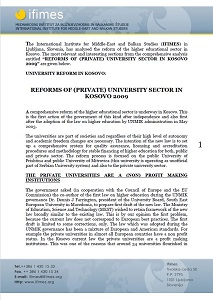
A comprehensive reform of the higher educational sector is underway in Kosovo. This is the first action of the government of this kind after independence and also first after the adoption of the law on higher education by UNMIK administration in May 2003. The universities are part of societies and regardless of their high level of autonomy and academic freedom changes are necessary. The intention of the new law is to set up a comprehensive system for quality assurance, licensing and accreditation procedures and methodology for stable financing of higher education for both, public and private sector. The reform process is focused on the public University of Prishtina and public University of Mitrovica (this university is operating as unofficial part of Serbian University system) and also to the private university sector.
More...